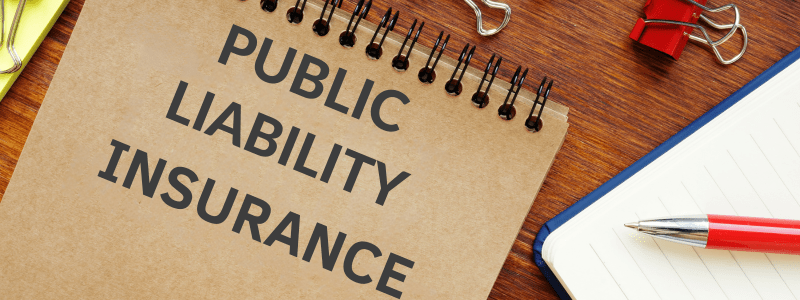
In today’s litigious society, public liability insurance has become an essential safeguard for businesses of all sizes. But what exactly is it, and why is it so important? Let’s dive into the details of public liability insurance, exploring its benefits, costs, and everything you need to know to protect yourself and your business.
Understanding Public Liability Insurance
What is Public Liability Insurance?
Public liability insurance is a type of insurance policy that protects businesses against claims made by third parties for injuries or damages. These third parties can include customers, clients, suppliers, or any member of the public. The coverage is essential for mitigating the financial risks associated with legal claims and compensations.
What Does It Cover?
Public liability insurance provides coverage for businesses against claims of injury or damage to third parties or their property. This includes incidents that occur on your business premises or as a result of your business operations. For example, if a customer slips and falls in your store or if your employee accidentally damages a client’s property during a service call, public liability insurance would cover the associated costs.
Who Needs Public Liability Insurance?
Anyone who interacts with the public during their business needs public liability insurance. This includes small business owners, freelancers, contractors, and large corporations. Essentially, if there’s a chance that someone could be injured or property could be damaged due to your business activities, you need this coverage. Whether you run a local cafe, provide consulting services, or operate a large manufacturing plant, public liability insurance is crucial for protecting your business from unforeseen incidents.
Key Terms and Definitions
- Policy Limit: The maximum amount your insurer will pay for a claim.
- Deductible: The amount you must pay out-of-pocket before your insurance kicks in.
- Third Party: Anyone who is not an employee or business owner, such as customers, clients, and the general public.
Types of Public Liability Insurance
General Public Liability Insurance
This is the most common type of public liability insurance, covering claims of bodily injury or property damage caused by your business operations.
Product Liability Insurance
If your business manufactures or sells products, Product Liability Insurance covers claims related to injuries or damage caused by those products.
Professional Indemnity Insurance
This type of insurance is essential for businesses that provide professional services or advice. It covers claims of negligence or mistakes that result in financial loss for your clients.
How Public Liability Insurance Works
The Claims Process
When an incident occurs, the affected party files a claim against your business. Your insurer then investigates the claim, determines its validity, and, if approved, pays out compensation up to the policy limit.
Policy Limits and Deductibles
Your policy limit is the maximum amount your insurer will pay for a single claim or in a policy period. Deductibles are the amounts you pay before your insurance covers the rest.
Case Study: Real-Life Scenarios
Consider a cafe owner whose customer slips on a wet floor and breaks a leg. Public liability insurance would cover the medical expenses and any legal fees if the customer decides to sue.
Benefits of Public Liability Insurance
Financial Protection
Public liability insurance protects your business from the financial burden of claims, which can be significant. Without it, you could face substantial out-of-pocket expenses that could jeopardize your business.
Legal Coverage
Legal fees can add up quickly, even if a claim is unfounded. Public liability insurance covers these costs, ensuring you have the resources to defend your business.
Peace of Mind
Knowing you have coverage in place allows you to focus on running your business without constantly worrying about potential lawsuits.
Who Should Consider Public Liability Insurance?
Small Business Owners
Small businesses often operate on tight budgets, making them particularly vulnerable to the financial impact of a liability claim.
Freelancers and Contractors
Even independent professionals can face liability claims. Public liability insurance ensures they are protected while working on various projects.
Large Corporations
For larger businesses, the risks are multiplied by the scale of their operations, making liability coverage an essential part of their risk management strategy.
Costs Associated with Public Liability Insurance
Factors Affecting the Cost
Several factors influence the cost of public liability insurance, including the nature of your business, the size of your operations, and your claims history.
Average Cost Estimates
On average, small businesses might pay between $400 to $1,000 annually for public liability insurance. However, this can vary widely based on the specific risks associated with your business.
How to Get the Best Rates
Shop around and compare quotes from different insurers. Also, consider bundling your public liability insurance with other types of coverage to get discounts.
Choosing the Right Public Liability Insurance Policy
Assessing Your Needs
Identify the specific risks your business faces and choose a policy that offers adequate coverage for those risks.
Comparing Insurance Providers
Look for insurers with strong reputations and good customer service. Read reviews and get recommendations from other business owners.
Reading the Fine Print
Carefully review the terms and conditions of any policy you consider. Pay attention to exclusions and limitations to ensure you understand what is and isn’t covered.
Common Misconceptions About Public Liability Insurance
Myths vs. Reality
Many business owners believe that public liability insurance is unnecessary or too expensive. In reality, the cost of not having coverage can be far greater than the cost of the insurance itself.
Addressing Common Concerns
Some worry that their claims won’t be covered or that the process is too complicated. However, with a reputable insurer and a clear understanding of your policy, you can navigate the claims process smoothly.
Legal Requirements and Public Liability Insurance
Industry-Specific Regulations
Certain industries may have specific legal requirements for public liability insurance. Ensure you are aware of any regulations that apply to your business.
Compliance and Legal Implications
Failing to comply with industry regulations can result in fines and legal action. Public liability insurance helps ensure you meet these requirements and avoid legal troubles.
Public Liability Insurance vs. Other Types of Insurance
Differences Between Public Liability and General Liability Insurance
While both types cover third-party claims, general liability insurance often includes additional protections like advertising injury or reputational harm.
Public Liability vs. Professional Liability
Professional liability insurance covers errors and omissions in the services you provide, whereas public liability covers physical injuries and property damage.
How to Make a Claim on Your Public Liability Insurance
Step-by-Step Guide
- Report the incident to your insurer as soon as possible.
- Gather all necessary documentation, including witness statements and photos.
- Cooperate fully with the insurer’s investigation.
- Keep detailed records of all communications and expenses related to the claim.
Documentation Needed
Ensure you have all relevant documents, such as incident reports, medical records, and any legal correspondence.
Tips for a Successful Claim
Be prompt and thorough in your reporting. Maintain clear and consistent communication with your insurer to avoid delays.
Risks of Not Having Public Liability Insurance
Potential Financial Losses
Without insurance, you would have to pay for any claims out of pocket, which can be financially devastating.
Legal Repercussions
You could face legal action and significant legal fees if someone sues your business and you lack the necessary coverage.
Impact on Business Reputation
Being uninsured can damage your business’s reputation, as clients and customers may see you as untrustworthy or unprofessional.
Tips for Managing Your Public Liability Insurance

Regular Policy Reviews
Review your policy annually to ensure it still meets your needs, especially if your business has grown or changed.
Keeping Accurate Records
Maintain detailed records of your business operations and any incidents that could lead to a claim.
Staying Informed About Changes in Laws and Regulations
Stay updated on any legal changes that could affect your coverage requirements or claims process.
Conclusion
Public liability insurance is a crucial component of any business’s risk management strategy. It provides financial protection, legal coverage, and peace of mind, ensuring that one unexpected incident doesn’t derail your business. By understanding your needs, choosing the right policy, and managing it effectively, you can safeguard your business against potential liabilities.
FAQs
1. What is the difference between public liability and general liability insurance?
Public liability insurance covers third-party injuries and property damage, while general liability insurance includes additional protections such as advertising injury and reputational harm.
2. How much does public liability insurance cost?
The cost varies based on factors like the nature of your business, its size, and your claims history. Small businesses might pay between $400 to $1,000 annually.
3. Do freelancers need public liability insurance?
Yes, freelancers and contractors can face liability claims just like larger businesses. Public liability insurance protects them from potential financial and legal repercussions.
4. How do I choose the right public liability insurance provider?
Assess your business risks, compare quotes from multiple insurers, and read reviews to find a reputable provider. Ensure you understand the policy terms and conditions.
5. What should I do if my public liability insurance claim is denied?
If your claim is denied, review the denial reasons, provide any additional documentation, and consider appealing the decision. Consult with a legal professional if necessary.
For a more comprehensive understanding of business insurance options, check out our detailed guide on Business Insurance Levantam: A Complete Guide.
